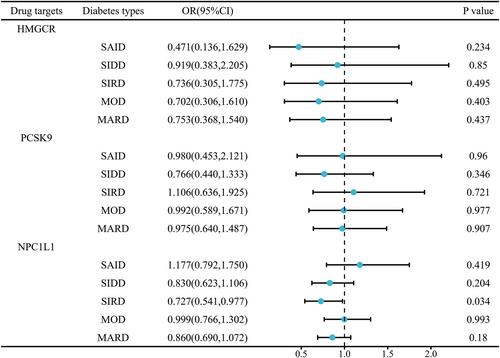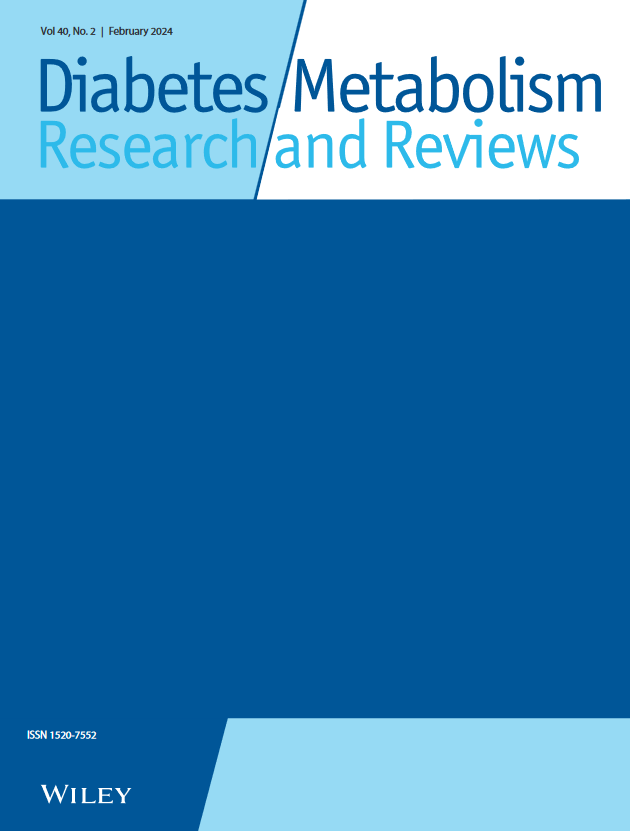Estimating the effect of lipid-lowering agents on novel subtypes of adult-onset diabetes
Abstract
Aims
The aims of the present study were to assess the effects of lipid-lowering drugs [HMG-CoA reductase inhibitors, proprotein convertase subtilisin/kexin type 9 inhibitors, and Niemann–Pick C1-Like 1 (NPC1L1) inhibitors] on novel subtypes of adult-onset diabetes through a Mendelian randomisation study.
Materials and Methods
We first inferred causal associations between lipid-related traits [including high-density lipoprotein cholesterol, low-density lipoprotein cholesterol (LDL-C), triglycerides (TG), apolipoproteins A-I, and apolipoproteins B] and novel subtypes of adult-onset diabetes. The expression quantitative trait loci of drug target genes for three classes of lipid-lowering drugs, as well as genetic variants within or nearby drug target genes associated with LDL-C, were then utilised as proxies for the exposure of lipid-lowering drugs. Mendelian randomisation analysis was performed using summary data from genome-wide association studies of LDL-C, severe autoimmune diabetes, severe insulin-deficient diabetes (SIDD), severe insulin-resistant diabetes (SIRD), mild obesity-related diabetes (MOD), and mild age-related diabetes.
Results
There was an association between HMGCR-mediated LDL-C and the risk of SIRD [odds ratio (OR) = 0.305, 95% confidence interval (CI) = 0.129–0.723; p = 0.007], and there was an association of PCSK9-mediated LDL-C with the risk of SIDD (OR = 0.253, 95% CI = 0.120–0.532; p < 0.001) and MOD (OR = 0.345, 95% CI = 0.171–0.696; p = 0.003). Moreover, NPC1L1-mediated LDL-C (OR = 0.109, 95% CI = 0.019–0.613; p = 0.012) and the increased expression of NPC1L1 gene in blood (OR = 0.727, 95% CI = 0.541–0.977; p = 0.034) both showed a significant association with SIRD. These results were further confirmed by sensitivity analyses.
Conclusions
In summary, the different lipid-lowering medications have a specific effect on the increased risk of different novel subtypes of adult-onset diabetes.


 求助内容:
求助内容: 应助结果提醒方式:
应助结果提醒方式:


